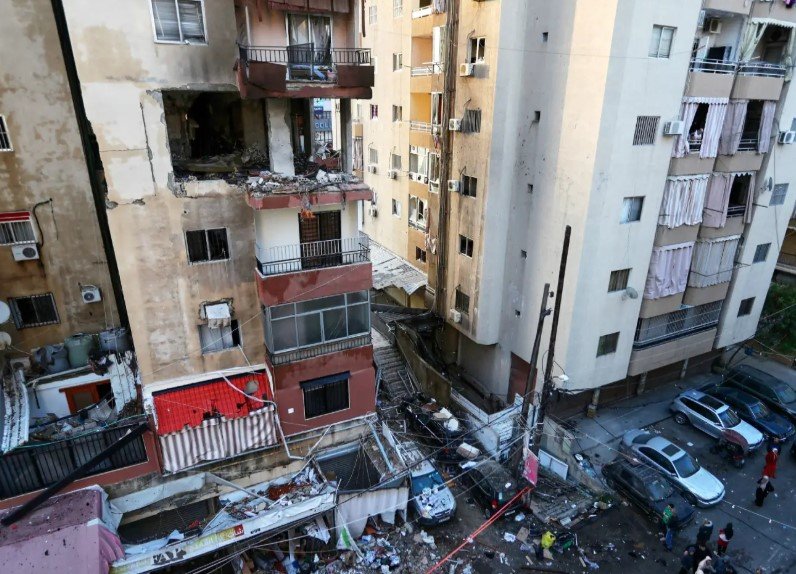Tensions Escalate as Houthi Attack Sends Shockwaves Across Central Israel
A missile launched by Houthi militants in Yemen set off sirens across central Israel on Sunday, April 13, 2025, as the country’s defense systems swiftly responded to the threat. The missile’s trajectory led to missile fragments falling in the Hebron area of the West Bank, further escalating the already tense situation.
The Israeli Defense Forces (IDF) confirmed the missile launch and reported that attempts to intercept the incoming missile were likely successful. While no injuries have been reported, the event serves as another reminder of the ongoing volatility in the region, where missile attacks from various factions have been frequent.
A Coordinated Defense Response
In a rapid defense response, the Israeli military deployed two interceptors in a bid to neutralize the threat. The Hetz (Arrow) missile system and an American-made THAAD missile were both launched simultaneously, aimed at neutralizing the missile before it reached Israeli territory. While the IDF has not provided confirmation of a complete interception, their initial assessment points to a likely success in averting a direct strike on populated areas.
This missile incident marks the second time in recent weeks that missile attacks from Houthi militants have triggered sirens in central Israel, with the last occurrence taking place at the end of March. The constant threat of missile strikes, along with recent reports of missiles falling in Saudi Arabia, underscores the region’s growing instability.

The Impact on the West Bank
The missile’s trajectory also caused significant concern in the West Bank, where fragments of the missile landed in the Hebron area. Fortunately, no casualties were reported in the West Bank either. However, the presence of the missile debris has reignited fears about the spread of violence from conflict zones, with local authorities and the United Nations monitoring the aftermath of the attack.
As tensions rise, the Palestinian territories remain vulnerable to the ripple effects of missile strikes from external forces. This most recent incident highlights the need for regional stability and a long-term solution to the various ongoing conflicts.
Increased Missile Threats in the Region
The increasing frequency of missile strikes coming from Yemen toward Israel raises serious security concerns for the region. Just days earlier, a ballistic missile launched from Yemen fell in Saudi Arabia as it was en route to Israel. While Saudi defenses successfully intercepted the missile before it could do any harm, the close call has prompted further discussions about the effectiveness of missile defense systems in the Middle East and the broader international community’s role in mitigating these threats.
Israel, which has long relied on its missile defense systems, such as the Iron Dome and the Hetz systems, continues to strengthen its defenses as regional tensions show no sign of easing. The recent missile attacks further strain the fragile situation between Israel, its neighboring countries, and other regional actors like the Houthis, whose presence in Yemen has been a growing security concern.
Diplomatic Fallout and Regional Concerns
The missile launches are not only a military issue but also a diplomatic one, as they bring into sharp focus the complex relationships between the various regional powers. The Houthis, who have been supported by Iran, have become a significant force in Yemen’s civil war. Their ability to launch missiles at such long distances, reaching as far as Israel, demonstrates the growing military capabilities of the group, which has already disrupted stability in Saudi Arabia and the UAE.
For Israel, these missile launches represent an escalation in the level of threat they face from hostile groups based outside their immediate borders. With tensions already high with Hezbollah in Lebanon and the ongoing situation with Palestinian factions, the last thing Israel needs is more missile threats coming from another front.
A Region on Edge
As missile attacks from Yemen continue to target Israel and Saudi Arabia, the broader Middle East region remains on edge. With the Houthis displaying increasingly sophisticated military capabilities, it’s unclear what their next move will be or how other regional players will respond. The situation presents a complex challenge for Israel, Saudi Arabia, and other countries in the region who are navigating the threat of missile attacks in an already volatile environment.
As of now, Israeli authorities have not confirmed any immediate follow-up military actions or strategies, but the escalation of missile threats has undoubtedly heightened the region’s security concerns.
